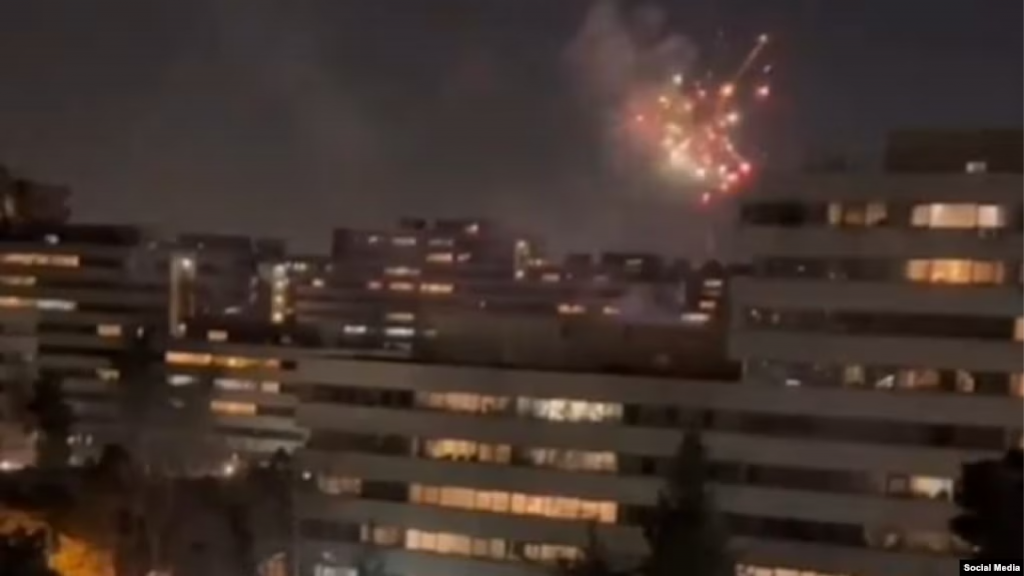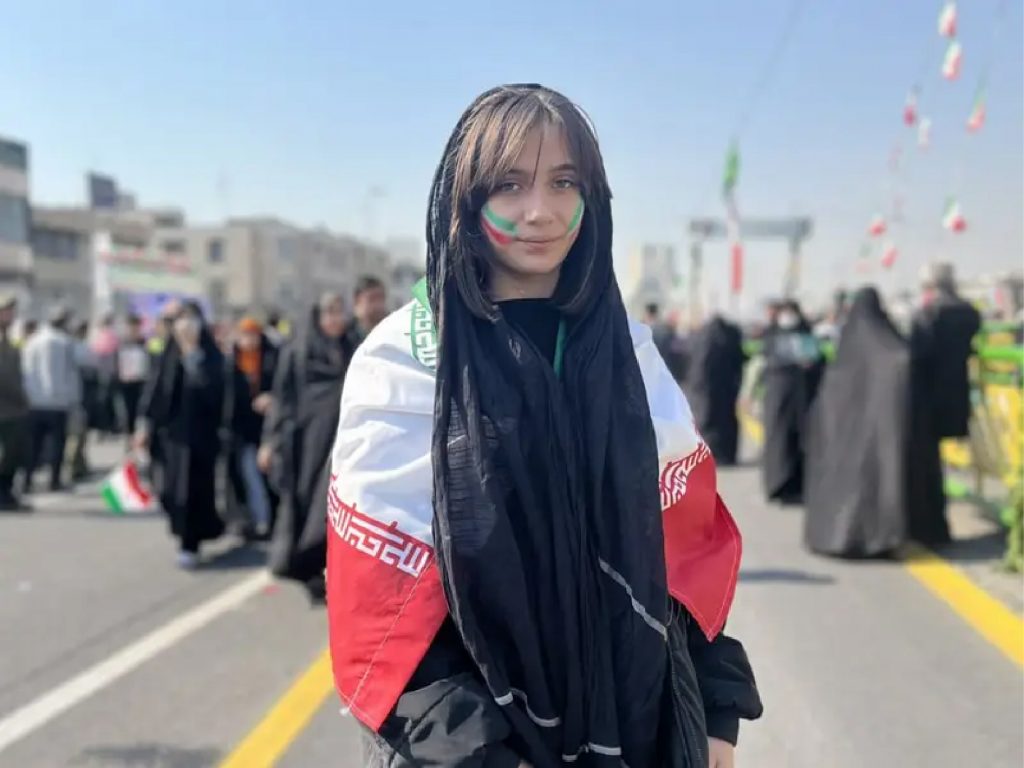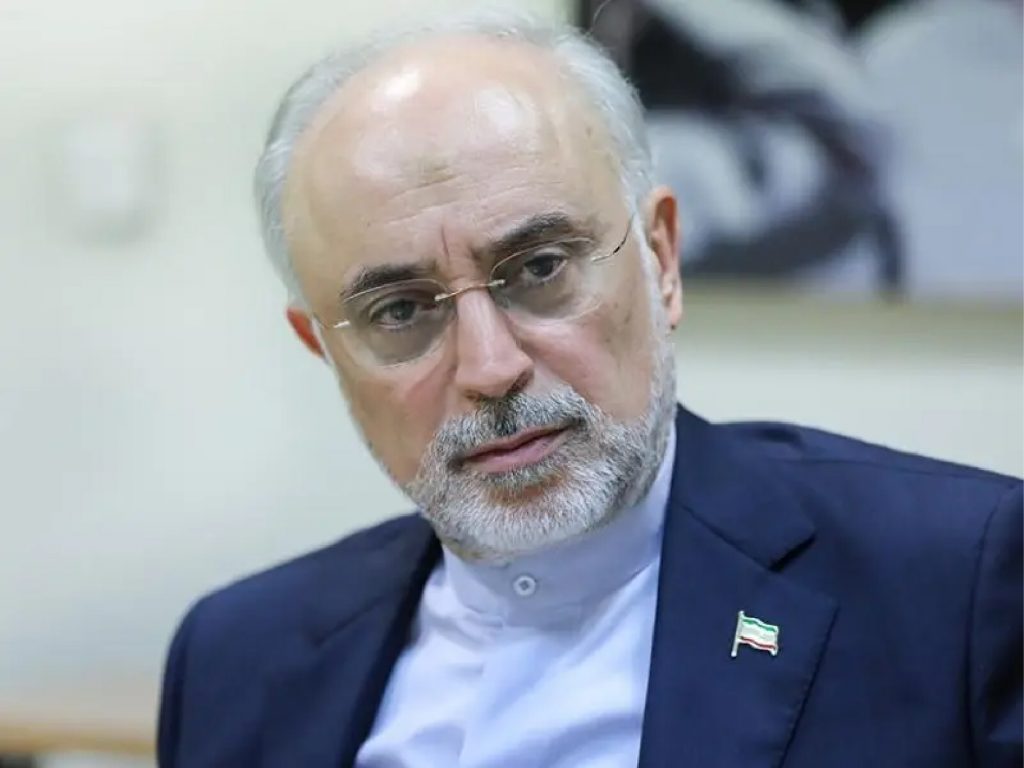
Pinnacles of Wealth Versus the Pits of Poverty!
The editorial of Setareh Sobh, on the 45th anniversary of the Iranian revolution, reviews the reasons why the revolution has failed in realizing its goals and promises.
The Iranian revolution had its 45th anniversary recently. For the revolution’s victory, a lot of blood was shed, many suffered and many were jailed and tortured. As a result, the shah’s regime collapsed along with his absolute power and absolute rule.
When people realized that their destiny is decided by only one person, they protested and rebelled against the status quo and some groups even took up arms to fight against the shah’s rule. People and revolutionaries who were fed up with the monarchy’s injustice dreamed of an ideal society where relations would be fair, ethical and respectful of all people’s rights — disregarding their convictions.
The older generations still remember that the majority of people were after freedom, justice, lack of corruption, equal enforcement of law for all and lack of class disparity so that people could live in comfort and security. This piece of writing explains why the revolution’s goals were not realized and why poverty is still spreading after decades.
- – All societies that have obtained welfare, justice and development have used their expert and experienced workforces. After the revolution, Mehdi Bazargan formed a cabinet whose members were technocrats and nationalists. But when some groups realized that their interests were not provided by Bazargan’s government, they took all measures to get rid of it. Occupying the US embassy in Tehran was one of these measures for which people are still paying the price.
- – It was possible to prevent the Iran-Iraq War or end it after conquering the city of Khorramshahr. But the war lasted for eight years.
- – Inflation statistics in the post-revolution governments released by the Central Bank show that the lowest rate of inflation was during Khatami’s two terms of government and the highest has been in Ebrahim Raisi’s government. The amount of liquidity during Mahmoud Ahmadinejad’s so-called revolutionary government witnessed a sixfold increase while the housing prices grew 16 times. The increase in liquidity resulted in a budget deficit, inflation, limited production and growing pressure on people – a defective cycle that is still in place.
- – Chief Justice Gholam-Hossein Mohseni Ejei understands people’s problems better than other authorities. He recently said that today our problem is people’s financial circumstances and livelihoods. Ejei’s warning must be taken seriously: policies must be revised, structures must be amended and an interest-oriented foreign policy must replace the current aggressive policy.
Insofar as there are sanctions against Iran and the FATF bills are not ratified, there will be no investment in Iran. Increasing production and lowering the inflation rate require the settlement of differences between Iran and the United States. As for foreign policy, all eggs must not be placed in the baskets of China and Russia. A balanced policy like that of Turkey has brought its people bread, water and air. But the “hardliners’” policies in Iran have jeopardized people’s bread, water and air. Currently, we are seeing the formation of pinnacles of wealth versus deep pits of poverty.
A Step Toward Peace?
The editorial of Arman Melli argues that the path toward peace in the Middle East is possible only through the two-state solution which requires the formation of an independent Palestinian government.
Formation and recognition of an independent Palestinian government is a step toward peace. UN Resolution 242 too has made this issue a requirement and Arab countries, particularly after the late King Abdullah of Saudi Arabia, have accepted it. Jihadi groups like Hamas, however, have not accepted this issue and the war has continued. But what is important is that Israel itself knows that the formation of the Palestinian government and establishing relations with the Palestinian government are the only ways to ensure its survival.
Operation Al-Aqsa Flood on October 7 had the advantage in that it seriously raised the issue of the formation of a Palestinian government. So today, it is not just the United States that backs the two-state solution; Europe, the UK, France, Germany and Russia have always supported Israel’s interests and are also advocating for it. Even Arab countries want Resolution 242 to be implemented.
But it is Israel that is in defiance of the formation of two states and is pursuing its own goals. On the other hand, resistance forces and Hamas, too, are against the two-state solution and are for destroying Israel.
So the continuation of this process requires the recognition of the Palestinians by Israel and, likewise, the recognition of Israel by the Palestinians. But the Israelis and Benjamin Netanyahu will not agree to anything but the destruction of Hamas, which is why Hamas, too, has adopted the same policy – i.e., destroying Israel.
The recent change in Israeli policy is that they announced that the Palestinians can return to the northern lands through safe corridors. But it is impossible to live in that area unless camps and facilities are provided for the Palestinians.
Now the question is: who is going to provide these facilities? It seems that the Israelis intend to hand over the administration of that area to unarmed Palestinians who will return there, so that they can run the place.
The supposition is that the two-state solution is going to be implemented after the war between Hamas and Israel is ended. Netanyahu is serious about Hamas and will not change his mind until this group is destroyed, or he himself is destroyed.
Change in Tactics
The editorial of Arman Melli argues that despite their longstanding hostile strategies against each other, Iran and the United States are not after any direct confrontation with each other in the region.
It has been 44 years since Tehran and Washington severed bilateral relations, and there have been many vicissitudes between the two countries. Sometimes, tensions have escalated between the two countries; sometimes, they have been softer toward each other. These two countries have held direct negotiations at certain points and have held talks about different issues through third parties.
From this perspective, Iran-US relations have never been good and bilateral relations have been constantly hostile. These relations have not changed yet and both sides have been openly hostile toward each other with their fingers on the trigger. But overall, both sides have adopted a tolerant, logical policy.
Both sides are acting logically while calculating their gains and losses. This means that Iran has made accurate calculations in its hostile relations with the United States and is also de-escalating tensions and avoiding conflict in the region. Particularly, direct confrontation between Iran and the United States is not on the agenda. So all in all, the policy adopted is based on national interests and the avoidance of any physical confrontation.
Iran’s strategy in the region is that foreign forces, particularly US forces, must leave the region, dismantle their bases and stop interfering in regional affairs. This has always been Iran’s long-term strategy and has never been discarded.
But its tactics have somehow changed: despite Iran’s harsh criticism against the US presence in the region, it has avoided a direct confrontation with the United States there. Although there are direct confrontations between the resistance forces and the United States in the region, Iran does not accept any responsibility for it.
On the other hand, the United States, too, has had hostile relations with Iran and has never caved in regarding the sanctions. Without any direct or indirect talks, the Americans have had a sort of understanding with Iran: They are neither reiterating their military policy against Tehran nor are they talking about regime change in Iran.
The US administration has announced that it does not intend to wage war against Iran and does not want to engage with Tehran in the region because it has certain interests, including energy resources in the region. It also has allies and bases in the region which can be vulnerable.
So despite its longstanding hostile strategy, the United States is trying to avoid a direct conflict with Iran.
Fifth Month of War in the Middle East
The editorial of Arman Emrooz argues that with the Gaza war entering its fifth month, none of the sides involved are after spreading the war to the entire region and facing each other directly.
The war in Gaza has entered its fifth month, and there are still warnings about the danger of the war spreading in the region. Obviously, by spreading the war, they mean a direct confrontation with Iran and its proxies, as certainly they are not talking about war with Arab countries. From the beginning, there were certain analyses that considered the spread of the war as inevitable. After any incident, they keep reiterating their predictions about the war, just as they did when a US base was attacked in Jordan.
From the early days of the war, the breakout of war seemed impossible between the Lebanese Hezbollah and Israel or between Iran and Israel – and Iran with the United States consequently. And four months of war have confirmed this point. The truth of the matter is that regional tensions due to the Gaza war have been under control, and despite its escalation in recent weeks, the spread of the war is still unlikely.
Today, on the one hand, Iran and Hezbollah and, on the other hand, the United States and Israel know very well that the other side is not willing to engage in a war. So, although each side is trying to maximally pressure the other side, they are trying to do so in a managed and controlled manner so that the situation does not run amok.

On 45th Anniversary of Iran’s Revolution People Chant Subversive Slogans

As the Iranian republic was celebrating the anniversary of the 1979 revolution with firework displays and other festivities, people in a number of Iranian cities expressed their deep exasperation by chanting anti-establishment slogans from their windows or rooftops at night.
Mostly targeting Supreme Leader Ali Khamenei and the founder of the theocratic establishment Ruhollah Khomeini, protesters shouted, “Death to the dictator,” “Death to Khamenei” and “Damn Khomeini.”
Such slogans were heard in several neighborhoods in Tehran as well as cities such as Karaj and Kermanshah, as shown on video clips posted on social media.
Calling the ruling establishment “the Republic of Execution,” people expressed their rage against the increasing number of summary executions carried out in the country. People also wrote slogans such as “Woman, Life, Freedom” on the walls of some cities like Shiraz.
Independent journalist Kianoosh Sanjari wrote on X that notwithstanding what the state media wanted people to do, they chanted against dictatorship and Khamenei.
The state media which had asked people to shout “Allah o Akbar” [God is Great!] at 9 pm — the slogan which used to be heard from rooftops at the same time during the 1979 revolution — did not publish any reports on those nightly slogans in the capital and other cities.
They instead reported that the “reverberation of Allah o Akbar was heard all over the country” while publishing video clips and images from state festivities and fireworks.
It is notable that the Iranian government broadcast extensive propaganda inviting people to commemorate the anniversary of the 1979 revolution every year, including chanting “Allah o Akbar” on the eve of its victory as well as marching on the streets.
GAMAAN Opinion Poll: 77% of Iranians Not to Participate in March Elections

Just before the 45th anniversary of the Iranian revolution, an opinion poll was conducted by the GAMAAN institute called “Iranians’ view towards 2024 elections,” in which 77% of people said they would not vote in the upcoming elections in March.
According to GAMAAN, the poll was conducted between January 31 and February 7 and only 15% of the participants in the poll said they intended to participate in the upcoming elections.
One significant point in the poll was that roughly 38% of the participants were not aware of the date of the election for the Parliament which will be held in March, showing how unimportant the election is for them.
Also, the poll indicates that 39% of those who had voted in the parliamentary election in 2019 do not intend to vote in the election this year.
Among first-time voters, 65% announced their intention of not participating in the elections.
In a part of the poll, it was asked whether participants would vote yes or no to the Iranian republic in a free referendum, to which 75% of the respondents said they would not vote for the Iranian republic.
The elections for the Iranian Parliament and Assembly of Experts will be held on March 1, while low public turnout and the indifference of a large part of society to these elections have created concerns for the establishment and even Supreme Leader Ali Khamenei.
Recently, Ali Khamenei underscored that everyone must try to promote public participation in the elections, while blaming the current economic problems and crises for people’s low turnout in the elections.
Critics of the Iranian government maintain that elections held by the Iranian republic lack the minimum international standards for a transparent, competitive and free election.
In the meantime, just as Iranian authorities are concerned about people’s low turnout in the March elections, a number of activists and former political prisoners have reiterated their resolve to boycott the elections.
For the reasons why they do not intend to vote, they have mentioned 45 years of crime and treason by the Iranian republic, state crackdowns and the massacre of protesters, poverty and corruption.
Iran Capable of Building Atomic Bomb, Implies Former Head of Atomic Energy Organization

Former Foreign Minister and Director of Iran’s Atomic Energy Organization Ali Akbar Salehi implicitly confirmed that Iran is capable of building an atomic bomb, saying that “we have all the nuclear science and technology” for it. Iran’s nuclear talks with global powers have been stalled for several months.
In an interview with Iran’s state television, Salehi refrained from directly answering the question about Iran’s capability in building a nuclear bomb, but said that “we have all the nuclear science and technology. Let me give you an example and you can make your own interpretation: what does a vehicle need? It needs a chassis, engine, steering wheel, gearbox” adding that they have built different parts of it.
Salehi, who was foreign minister and head of Iran’s Atomic Energy Organization, is considered as a figure close to the Iranian supreme leader.
This is not the first time that Iranian officials have claimed reaching the capability of building a nuclear bomb.
In the summer of 2022, Kamal Kharazi, head of Iran’s Strategic Council in Foreign Relations and advisor to Ali Khamenei, said in an interview that Iran had the capacity for building a nuclear bomb but did not intend to do so.
Kharazi added that only in a few days “we increased the level of uranium enrichment from 20% to 60% and it can be easily increased to 90%.”
Iranian Supreme Leader Ali Khamenei is the commander-in-chief and is in charge of the final decision on Iran’s nuclear activities.
Reacting to Salehi’s recent remarks, International Atomic Energy Agency (IAEA) Director General Rafael Grossi emphasized that Iran is not fully transparent regarding its nuclear program.
Earlier, the IAEA announced that Iran has increased the production of 60% enriched uranium to 9 kilograms per month.
In the meantime, the IRGC chief has claimed to have launched a long-range ballistic missile from a military vessel.
Sardar Salami claimed that this new capability would increase “our naval clout and power to any desirable location” because Iran’s oceangoing fleets can be present anywhere in the world.
Parliamentary Documents Leaked After Cyberattack

The Iranian Parliament and its news agency ICANA (Islamic Consultative Assembly News Agency) announced on February 13 that its websites were hacked and rendered inaccessible due to a cyberattack.
The statement was published after a hacking group called “Uprising Till Overthrow,” affiliated with the People’s Mojahedin Organization of Iran (MEK), published several classified documents, saying they succeeded in hacking the main server of the Parliament as well as servers of its news agency, library and document center.
The hackers have disseminated many documents, including MPs’ correspondences, such as those of the Parliament speaker with officials at the General Staff of the Armed Forces and IRGC Intelligence Protection Organization.
The leaked documents also comprise a list of MPs’ paychecks, showing that the 226 Parliament members received more than 48 billion tomans in total last June.
An hour after the official statement, the spokesperson for the Parliament’s board of directors denied the revealed amount of MPs’ paychecks, saying their monthly salary is “25 million tomans,” adding that “any amount more than this published on the internet is a lie against MPs and the Parliament.”
Referring to the upcoming parliamentary elections in March, the Telegram channel of Uprising Till Overthrow called such elections “fake” and its MPs “illegitimate.”
This hacking group said it has repeatedly infiltrated the servers of the Iranian establishment like the Foreign Ministry, Tehran Municipality and IRIB (state television).
